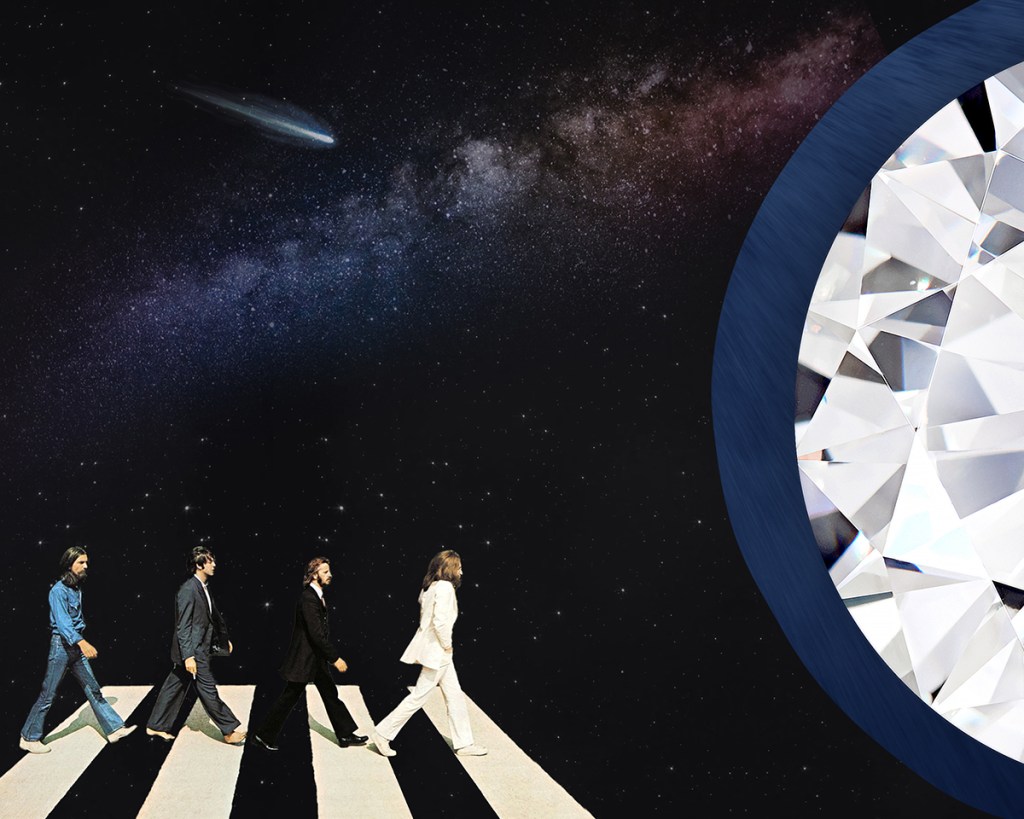It’s Raining Diamonds on Saturn
As per the scientists, diamonds exist in abundance in the universe. Not only have stars been made entirely of diamonds, but some planets have even been known to experience the inimitable diamond rain!
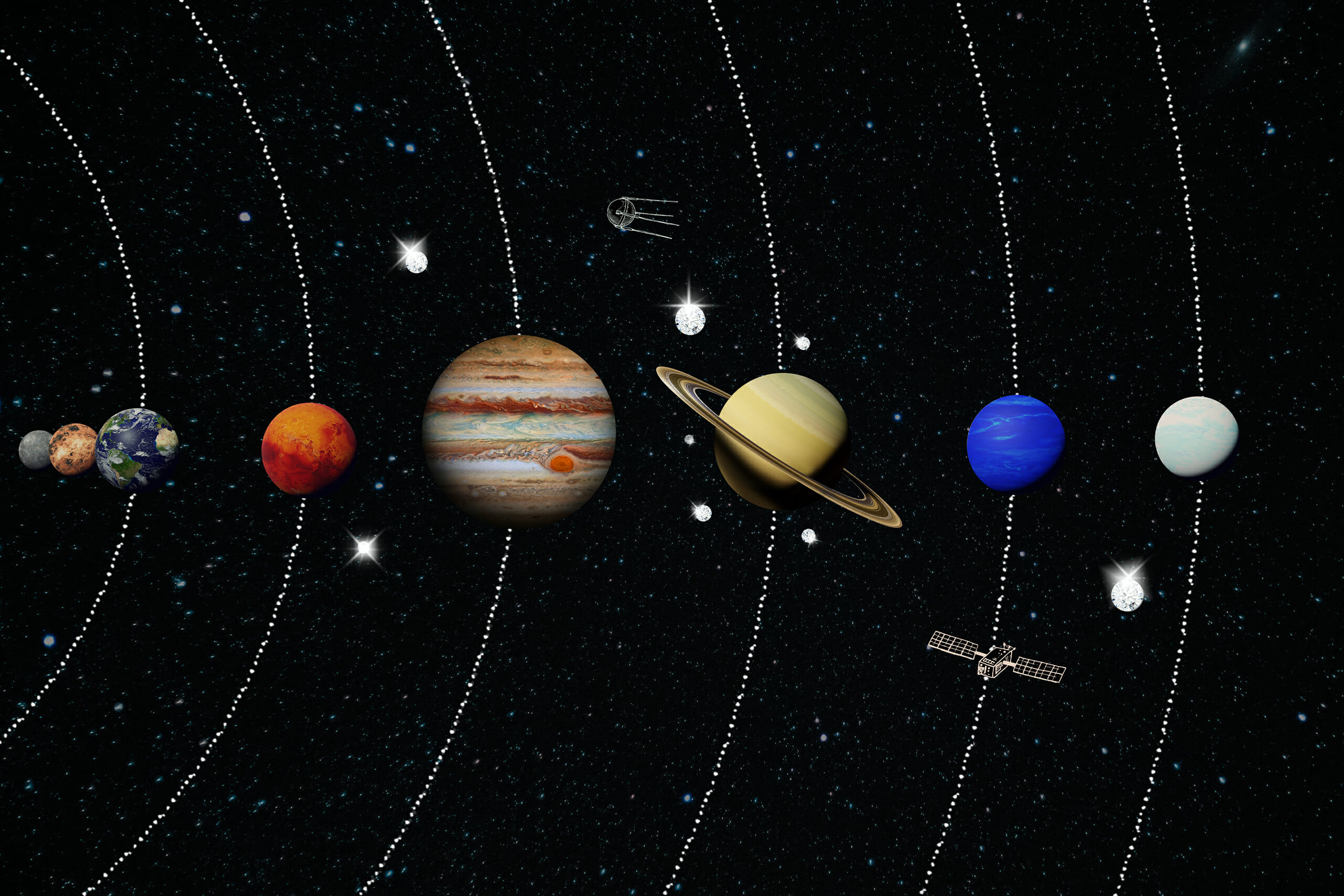
According to myths, when natural diamonds were first discovered in India centuries ago, strewn about on the fields after thunderstorms, people assumed that they were divine blessings. As the years passed, we grew to realise that natural diamonds didn’t actually rain down from the skies. They were in fact created deep in the heart of Earth under tremendous heat and pressure. But what if we told you that diamond rains are for real in some places beyond our earthly realms? In fact, would you believe us, if we told you that diamonds quite literally stud the sky?
Diamond Rain on Saturn: Celestial Marvel
For centuries, astronomers have been fascinated by Saturn. After all, she has been hailed as the precious jewel of our solar system, one of the most beautiful planets. And while her rings have mesmerised us for centuries, it is even more amazing to realise that it quite literally rains diamonds out there! Thanks to the new atmospheric data discovered in 2012, we finally know how.
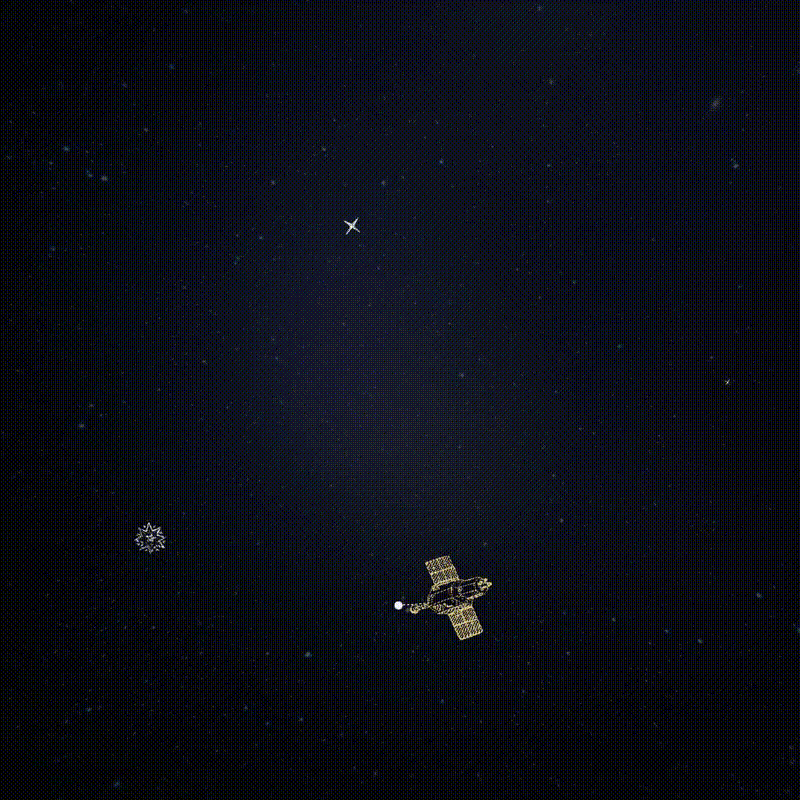
With carbon being abundant in this gas giant, lightning storms turn methane into soot which as it falls hardens into chunks of graphite and then rare diamonds! These diamond “hailstones” eventually melt into a liquid sea in the planet’s hot cores. Measuring roughly a centimetre in size, these diamonds are so glorious even the most glamorous celebrities would have wanted a piece of this!
And how many diamonds are being created on Saturn? Roughly 1,000 tonnes of diamonds a year! The Aikhal mine in Russia, known to be the biggest natural diamond mine in the world, is estimated to have 175.56 million carats of proven as well as probable diamonds. Compared to the incessant diamond rain on Saturn, that does seem like there’s more we can wish for!
Diamonds in Space: Jewels Beyond Earth
As studies show, natural diamonds though rare on earth, are more commonly encountered than one could imagine in our universe! Extraterrestrial diamonds not only appear on planets, but stars and meteorites as well.
In fact, the other gas giant, Jupiter is famed to be rather similar to Saturn in terms of diamonds hailing down. At the greatest depths of Jupiter’s atmosphere, the conditions are so extreme that the gems may actually form oceans of liquid diamond.
In addition to Saturn and Jupiter, Uranus and Neptune have also been famed for their diamond studded skies. In fact, it was in 1981 that Marvin Ross wrote a paper that proposed that diamonds might be found on these ice giants.
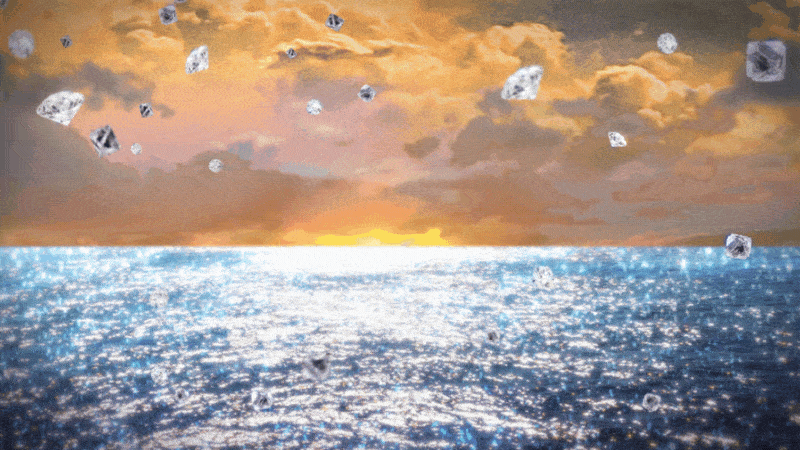
We know that the atmospheres of Neptune and Uranus are primarily made up of hydrogen and helium, with a small amount of methane. But what might seem surprising is the fact that below these atmospheric layers, a superhot, superdense fluid of materials such as water, methane, and ammonia exists. And it is in this hot, dense material that their famed diamonds are formed. Unlike Jupiter and Saturn, the cores of Uranus and Neptune are much cooler, and thus the high temperature that causes the diamonds to melt is never reached. So, the diamonds in Neptune and Uranus may never melt!
Diamond Planet: A World Made of Diamonds
In 2004 astronomers chanced upon one exoplanet in a galaxy nearby that seemed to be straight out of science fiction. The 55 Cancri e, 40.12 light years away from us might be just twice the size of Earth, but it has eight times its mass. The reason? It’s allegedly made mostly of precious diamonds! Zooming around its star in just 18 hours, its surface has a temperature of nearly 2,700 degrees Celsius. Which is perhaps just about right for an abundance of diamonds!
According to NASA, the value of the planet has been theorized to be around a whopping $26.9 nonillion! Compared to it, The World Bank’s estimate of Earth’s GDP appears to be measly at $70 trillion!
And as this planet along with five others orbits around the main sequence star, there are some stars in the universe adorn the sky with an unmistakable sparkle that Diamond aficionados know only too well…
Diamond stars in galaxies far, far away
Identified initially as V886 Centauri or BPM 37093, Lucy, the white dwarf is about 4000-kms is possibly the largest natural diamond anyone has ever seen. At a staggering 10 billion trillion trillion carats, it shone so brightly that it could be seen from the constellation Centaurus, almost fifty light-years away from us!
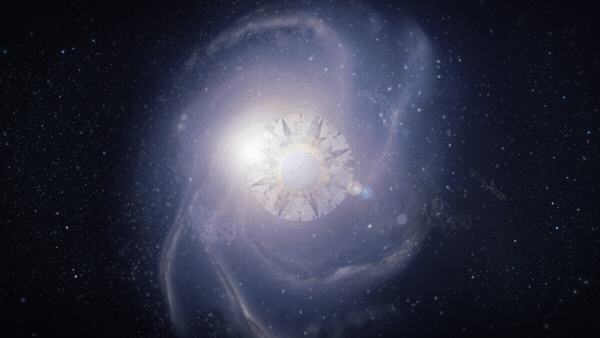
Lucy might be the first of her kind, she isn’t the only one. 11-million-year-old PSR J2222-0137 spotted almost 900 light-years away, this diamond is much larger than Lucy. Theorised to possibly be older than the Milky Way galaxy, this star, along with many others like it, prove that in some parts of our universe, diamonds are indeed forever.
Curious to know more? Read on to find out about the star made of diamonds… Lucy.
